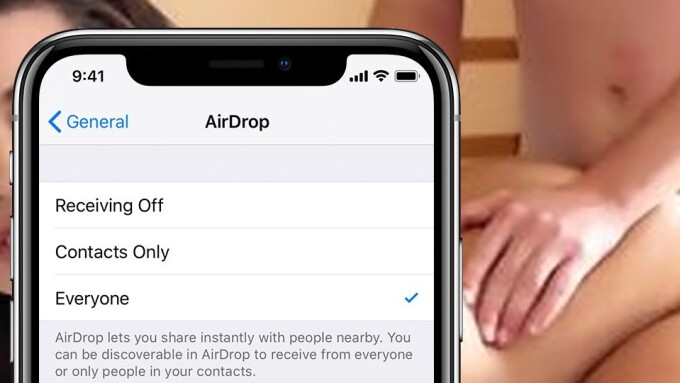NEW YORK — New York’s City Council is weighing a measure to make it illegal to take part in “cyber flashing” using technology like Apple’s AirDrop to offer up unsolicited explicit images to recipients.
The new piece of legislation would add language to the city code that would make it “unlawful for a person, with the intent to harass, annoy or alarm another person, to send by electronic device an unsolicited intimate image.”
It is already a misdemeanor in New York state to harass someone by phone, mail or other forms of written communication. But the statute doesn’t address the issue of visual images.
With New York City’s measure, cyber flashers could be punished with $1,000 fines and up to a year in jail for offenses.
AirDrop is specific to iPhones and other Apple products. It uses Wi-Fi and Bluetooth to communicate over a short range to other devices, like other iPhones. Some Android-enabled devices have access to a similar feature called AirDroid.
With AirDrop, users can send images anonymously to others if the recipient’s phone is set to allow drops to “everyone” and if it is within 30 feet of the other device.
The only method to block anonymous images is to set the AirDrop feature only for use between contacts (which is the default setting from Apple) or to turn it off completely. AirDrop only identifies nearby phones by their nicknames.
One of the first reports of cyber flashing was in London in 2015, when a female commuter said she had received lewd photos via AirDrop. Since then, people in New York and other cities have posted comments on Reddit and Twitter about how explicit pictures have showed up on their devices — oftentimes while on crowded subways.
New York City's legislation, which was introduced to City Council last week, was referred to its Committee on Public Safety. If passed by City Council and signed into law by the mayor, the measure would go into effect within 60 days.






